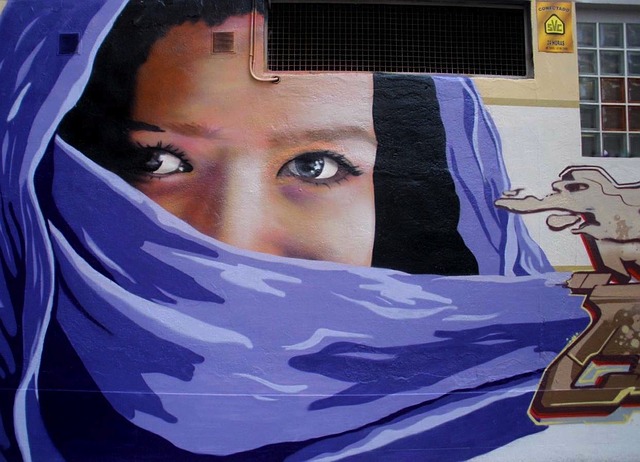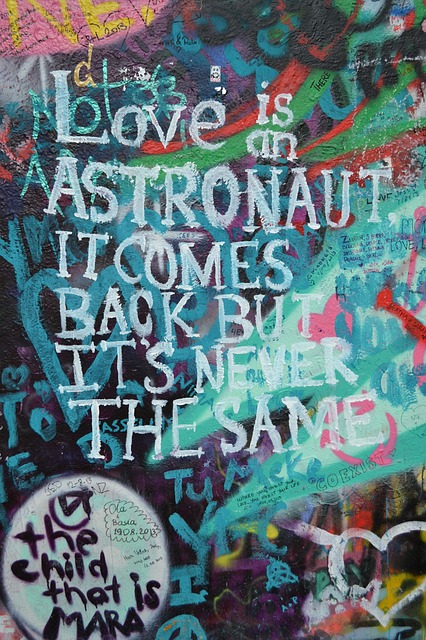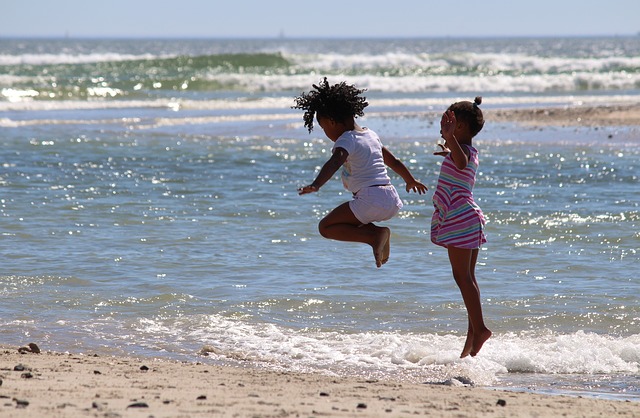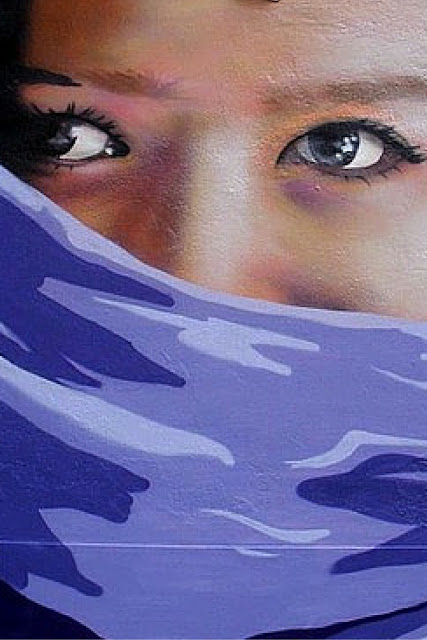I am a white girl in a white city and I would never identify myself as a racist, but how many people of other races would actually call me “friend”?
Until recently, my family lived in Chicago and our neighborhood reflected many colors, languages, sexual orientations and ages. Our apartment building housed a Muslim Indian family and two married lesbian couples. Nepalese women lounged on straw mats at the playground and moms wore hijabs and pushed children in strollers. We were often the only Caucasians at the grocery store as my son and I mingled with grannies who would pinch his cheeks and bless him in other languages. Over the years, I was a teacher in three different schools throughout the city: one was 100% African American, another was in Chinatown and a third was a magnet school with students of all races and socioeconomic backgrounds.
Diversity is what I miss most about living in Chicago.
But though we were exposed to the world’s flavors, colors, textures and sounds, I often felt like an imposter. Was I actually friends with anyone who looked different from me or spoke a different language from me? Had they been to my home or had I been to theirs?
Do we wear diversity as a badge, patting ourselves on the back for being racially diverse without actually entering into any relationships with people of other races and cultures?
Living in a diverse city may feel hip, but brushing shoulders with someone is not the same as knowing them.
Diversity has become just a trendy word, often devoid of actual relationship.
This year, we moved to a city that is 93% white. Now, I’m wondering how to expose my children to diversity without accosting the first person of another race that we meet and begging them to be our friend.
So why is it so important to have friends that are different from us and how can we make them organically?
When we develop relationships beyond our color lines, the first wall to fall is fear. We fear what we do not know or understand. Personally, I had to overcome my fear of Muslims.
In 2004, I volunteered to help a missionary family for the summer. I ended up having only one offer–in Tajikistan. I was terrified to go to a Muslim country that was near Afghanistan (won’t I get kidnapped?). But when I finally made the decision to go, my prejudice unraveled. The country was ruggedly beautiful, the culture was fascinating, and the Tajiks were kind, hospitable, and generous. And I quickly found that once I had relationships there, I no longer felt afraid.
Later, I lived for five years in a Muslim area of China, where I visited my students in their homes and shared meals with their families. Even now, when I meet visitors to the U.S. from other countries, I feel indebted to the kindness I experienced from my Muslim friends in China, and am quick to ask them how they are faring in America.
In 2013, I volunteered to help some Saudi Arabian college students practice their English. One of the girls, a devout Muslim, ended up living with us for a year. She ate with us, joined us on vacation and camping trips and babysat our children. She became a part of our family.
She visited us recently and over tortilla soup and bread, she told us how four of her female Saudi friends in four separate large cities have had individuals follow them and tear off their head-coverings (hijabs). She said she no longer wears hers because she’s petrified. This is our dear friend, who my children call “aunt,” so we were livid.
It made the injustice personal.
Though my children have one person in their life who is of another race, she is the only one right now. And I’m ashamed of that. So how can parents of children living in predominantly homogeneous areas of the country ensure that we and our children form friendships with people who look different from us?
For that to happen, we can’t just stay in the stream we are in, floating along and being swept by the current. We need to turn around and swim against the push. Or possibly, we need to jump out of the water all together and change streams.
One way is to intentionally live in diverse neighborhoods with diverse schools. We can also visit universities near us that have international students, many who will never set foot in an American’s home in all their years in America. Many cities have ESL classes with volunteer opportunities to help international students or immigrants practice English. Every city has enclaves of people who are different from us if we are willing to look.
When we develop relationships, the fear of the unfamiliar seeps away and is replaced by understanding. It is replaced by love. And if we are Christ-followers, we are called first to love God, then to love our neighbors. And we can’t love someone until we know them.
These friendships change our perspective when we hear that another black teen has been shot, because we not only know of someone like him, we’ve had them in our homes and we’ve been to theirs. We have empathy because we no longer hear “single black male,” on the news, we hear “My friend, Justin, who plays video games with me and likes pepperoni pizza.” Or when we hear “Muslim man held under suspicion,” we think, “My good friend, Ahmed, with the belly laugh who likes to tell silly jokes.”
When our friends experience injustice, it gets very personal, very quickly. And though one friendship will not topple the tower of racism in our country, it will cause it to quake just a bit.
~~~~~~
How many true friends do you have who are different from you?
If you are in a very white city, what do you do to ensure that your children are exposed to diversity?
Resources:
Why Christian Parenting Includes Talking to Your Kids about Race
This Shalom in the City podcast hosted by Osheta Moore with special guest, Megan Tietz, the host of the podcast, Sorta Awesome, who shares why she and her husband chose to send their children to failing schools on purpose.
On Race, Rights & Raising a Black Son: An Interview with Rachel Yantis An interview with a friend about how her perception of race in our culture has changed now that she has to see the world through the eyes of her African American son.
~~~~~~
Last Post: 3 Myths of Perfectionism {Thursday Thoughts for Writers}
Next Post: Skinny Dipping & Lazarus
Follow me on Twitter and Facebook
Sign up to receive posts by email in the upper right corner so you don’t miss a post!
Linking up with Arabah Joy





Hi Leslie!
I clicked over because you commented on my site. I just read this post and I have never read this kind of transparency on the web before from anyone who "moves around" in our Christian circles. You are brave! And I want to commend you. I really appreciated this post.
I hurt for your friend who is afraid to wear her hi-jab. Please tell her that I am so sorry for her and that I apologize for the ignorant people who (hopefully) just don't know any better right now, but will one day hate themselves for their shameful and evil behavior. Please do that for me? Tell her that I am a "Black Christian" and I'm so sorry. My people used to be her. It's a terrible thing to be hated because of how you look.
Since I am a genuine believer in the Jesus Christ, God has given me a wonderful circle of Christian homeschooling friends – a ton of who are Vanilla (ha ha, that's code for white). They love God with all of their hearts and their kids and my kids are true friends and always at my home or we are at theirs and at social events of all kinds. This is truly the difference that Christ makes.
God Bless You!
Tiffiney
Welcome Home Ministry
Thank you for your words–I'll be sure and tell my friend the next time I see her. And I'm so glad that you are living in community with people who are different from you. I hope to be doing the same in the near future.
Oh, how I love this post and will share it! I grew up overseas, and for four of those years I was in Singapore, home to 27 different nationalities (at the time). Growing up with so much cultural diversity, I had a really hard time understanding the prejudice I encountered back in the US. Over time, I became complacent about diversity, enjoying my mildly diverse but mostly white world. Then I adopted my daughter, a Latina. I encountered racism firsthand in my white upper middle class neighborhood and was saddened when J came home from preschool "wishing she was white." Later, I moved to a less affluent area where I was the minority. Over the years in this diverse neighborhood, I have had to overcome my own prejudices to realize just how similar we all are in our values, our hopes and our dreams. It saddens me that so many people today are afraid of people just because of their race or religion, due to illegal immigration or extremist terror groups. They are really missing out. You are absolutely right in that the only way for us to become more educated about people different than ourselves is to spend time with them – really get to know them. One way is to become involved in ministry teams that reach people of other cultures or in inner city schools. I did that many years ago, and it really opened my eyes to the challenges of others in the community that we may know nothing about.
God bless!
I loved reading this. You said it beautifully. I agree that it's very important to seek out relationships with people who look different than us. There are so many rewards- and as Christians, we are called to love everyone. I live in a relatively diverse city but we still have to be intentional about forming relationships with people from different cultures. It doesn't happen on accident.
Thank you for linking with Grace and Truth last week. I would like to feature this post on Friday.
Linda, Thank you so much for sharing your story. And I completely agree that when we don't have relationships with people who are different from us that we are missing out.
Dawn, You're right, I think it's really key to be intentional, because relationships with people who are different from us unfortunately don't "just happen." And I'd love for this message to be featured–thanks!;-)
Thank you for this. It is beautifully said and thought provoking. Our family is multi-racial and you're right . . . when injustice happens it's personal when they are friends and family. May we all (myself included) do a better job at making friends. Blessings!
Deb, Thanks so much for stopping by–I really appreciate your comment!
“If you are in a very white city, what do you do to ensure that your children are exposed to diversity?”
This is just nuts. Do you not see how racist this is?